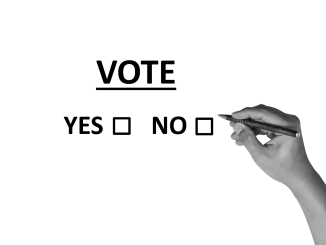
There is no white rabbit or smoking caterpillar to lead people through the narrow tunnel covered in fake spider webs but a young man and his flash light. Cheers rise from the other side as music booms through the air. A few latecomers rush out of the tunnel into wonderland-like woods and towards the stage. Jerry Fish and his band are playing.
This is the Marley Grange Picnic Halloween festival. Everything has been meticulously prepared to create an unforgettable night.
People are dancing, laughing, singing and… filming.
Jerry Fish soon interrupts his performance and shouts at a man in the public. “I hope you are enjoying this thing on your old iPhone, motherf****r.” He jumps off stage, walks towards him and snatches his phone.
Later again Jerry Fish gives out to the people surrounding him. As he walks around in the crowd and attempts to make contact with the public, people’s first reaction are to raise their phones and film him pass by. “I think there is no fucking point in watching this later,” he says. “This is the time now people, right here, right f**king now.”
While some might find his style slightly out of place, he has a point. Why record for later what we can live in the present?
New technology and in particular smartphones have grafted themselves to the human body. They are the third eye on the tip of our fingers, an extension of our arms.
Technology has not surpassed the human body yet for the way we see, experience and feel. And looking at life through a smartphone lens, on an eight megapixel screen is not a surrogate to the human eye, yet.
These videos will be stored away the moment they stop recording and will unlikely be looked at again.
But not all artists seem to think that this smartphone pandemic is a bad thing. At another gig, this time in the Academy, the Foxes’ singer was faced with a wall of smartphones, recording every one of her moves and taking snaps of the show. Although she did not seem to mind as she pranced about the stage, the scene was quite unsettling to watch.
Some were so focused to record the singer they adored that night and watch her on their tiny screen that they seemed completely oblivious about how close she really was. When the singer decided to high five the public directly in front of her (probably in an attempt to bring them back to the present), panic drew on the faces of these improvised little Big Brothers as they tried to decide whether to lose the phone, take the opportunity or embrace both and keep recording as they high five her, phone in hands.
But the best example of this new trend might be the ocean of smartphone screens during Beyoncé’s gig at the O2 in Dublin. “People seem to go outside just to take pictures and share them on social media,” one DCU student, Katie Coyle, observed.

In France, Chefs are trying to ban cameras in their restaurant . “I would like people to be living in the present. Tweet about the meal beforehand, tweet about it afterwards, but in between, stop and eat. Sitting down for a meal should be an enjoyable moment shared with us, not with the social network. Instead of enjoying the moment they are elsewhere. But it is a minority of diners,” says Chef Alexandre Gautier. On La Grenouillere’s menu, Gauthier’s restaurant in La Madelaine-sous-Montreuil in northern France, a sign bans costumers from taking pictures.
Food is not the only thing trending on social media. With the rise of widespread, accessible technology, citizen journalists capture breaking news event on their phones throughout the world. News organisations cannot be everywhere at once, and citizen journalism can be a great asset when covering breaking events. It has made censorship more difficult for controlling governments, although it is still strongly enforced in many countries.
China’s government, for example, ordered all TV broadcasters to delay their live coverage of the Beijing Games by 10 seconds in order to give them time to react and cut any ‘Free Tibet’ demonstration and has a strong hold on Internet accessibility.
Internet and smartphones have in a way helped human rights. Smartphones with social media have helped bring human rights issues to the surface and spread them across the world as we witnessed during the Arab Spring or more recently with the Ukraine unrest.
But it has also brought up ethical issues. Two striking examples come to mind. The first one is the video of the woman shot in the neck during the Cairo unrest in the summer of 2013. While it is important to show the reality of such events it also dehumanises both the person filming and the person in distress.
The same scenario happened during the Boston bombing. The video was striking. Amongst the screams of panicked people we can hear a first man shout “there’s gotta be people, hurry up.” Moments later another man shouts for help. As the camera man walks amongst the rubble he repeats, “Oh my god, oh my god, oh my god”. He is shocked, and who could blame him. But he has made that conscious split second decision to clutch on his phone and film rather than stretch out his arm to help.
And this tells us a lot about the way our society works. We substitute our lives to technology, disregarding the real world for a proxy, a distanced digital version.
Marie Lecoq is a final year Journalism student in DCU.
Image credit: Rachel McLaughlin (top) and Ciara Moore (middle).




Leave a Reply